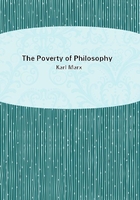
第29章 (2)
Is it surprising that everything, in the final abstraction --for we have here an abstraction, and not an analysis -- presents itself as a logical category? Is it surprising that, if you let drop little by little all that constitutes the individuality of a house, leaving out first of all the materials of which it is composed, then the form that distinguishes it, you end up with nothing but a body; that, if you leave out of account the limits of this body; you soon have nothing but a space -- that if, finally, you leave out of the account the dimensions of this space, there is absolutely nothing left but pure quantity, the logical category? If we abstract thus from every subject all the alleged accidents, animate or inanimate, men or things, we are right in saying that in the final abstraction, the only substance left is the logical category. Thus the metaphysicians who, in making these abstractions, think they are making analyses, and who, the more they detach themselves from things, imagine themselves to be getting all the nearer to the point of penetrating to their core --these metaphysicians in turn are right in saying that things here below are embroideries of which the logical categories constitute the canvas.
This is what distinguishes the philosopher from the Christian. The Christian, in spite of logic, has only one incarnation of the Logos ; the philosopher has never finished with incarnations. If all that exists, all that lives on land, and under water, can be reduced by abstraction to a logical category -- if the whole real world can be drowned thus in a world of abstractions, in the world of logical categories -- who need be astonished at it?
All that exists, all that lives on land and under water, exists and lives only by some kind of movement. Thus, the movement of history produces social relations; industrial movement gives us industrial products, etc.
Just as by dint of abstraction we have transformed everything into a logical category, so one has only to make an abstraction of every characteristic distinctive of different movements to attain movement in its abstract condition -- purely formal movement, the purely logical formula of movement. If one finds in logical categories the substance of all tings, one imagines one has found in the logical formula of movement the absolute method , which not only explains all things, but also implies the movement of things.
It is of this absolute method that Hegel speaks in these terms:
"Method is the absolute, unique, supreme, infinite force, which no object can resist; it is the tendency of reason to find itself again, to recognize itself in every object."( Logic , Vol.III) [29]
All things being reduced to a logical category, and every movement, every act of production, to method, it follows naturally that every aggregate of products and production, of objects and of movement, can be reduced to a form of applied metaphysics. What Hegel has done for religion, law, etc., M. Proudhon seeks to do for political economy.
So what is this absolute method? The abstraction of movement.
What is the abstraction of movement? Movement in abstract condition. What is movement in abstract condition? The purely logical formula of movement or the movement of pure reason. Wherein does the movement of pure reason consist? In posing itself, opposing itself, composing itself; in formulating itself as thesis, antithesis, synthesis; or, yet, in affirming itself, negating itself, and negating its negation.
How does reason manage to affirm itself, to pose itself in a definite category? That is the business of reason itself and of its apologists.
But once it has managed to pose itself as a thesis, this thesis, this thought, opposed to itself, splits up into two contradictory thoughts -- the positive and the negative, the yes and no. The struggle between these two antagonistic elements comprised in the antithesis constitutes the dialectical movement. The yes becoming no, the no becoming yes, the yes becoming both yes and no, the no becoming both no and yes, the contraries balance, neutralize, paralyze each other. The fusion of these two contradictory thoughts constitutes a new thought, which is the synthesis of theM. This thought splits up once again into two contradictory thoughts, which in turn fuse into a new synthesis. Of this travail is born a group of thoughts.
This group of thoughts follows the same dialectic movement as the simple category, and has a contradictory group as antithesis. Of these two groups of thoughts is born a new group of thoughts, which is the antithesis of them.
Just as from the dialectic movement of the simple categories is born the group, so from the dialectic movement of the groups is born the series, and from the dialectic movement of the series is born the entire system.
Apply this method to the categories of political economy and you have the logic and metaphysics of political economy, or, in other words, you have the economic categories that everybody knows, translated into a little-known language which makes them look as if they had never blossomed forth in an intellect of pure reason; so much do these categories seem to engender one another, to be linked up and intertwined with one another by the very working of the dialectic movement. The reader must not get alarmed at these metaphysics with all their scaffolding of categories, groups, series, and systems. M. Proudhon, in spite of all the trouble he has taken to scale the heights of the system of contradictions, has never been able to raise himself above the first wo rungs of simple thesis and antithesis; and even these he has mounted only twice, and on one of these two occasions he fell over backwards.
Up to now we have expounded only the dialectics of Hegel. We shall see later how M. Proudhon has succeeded in reducing it to the meanest proportions.